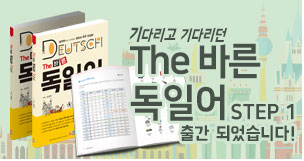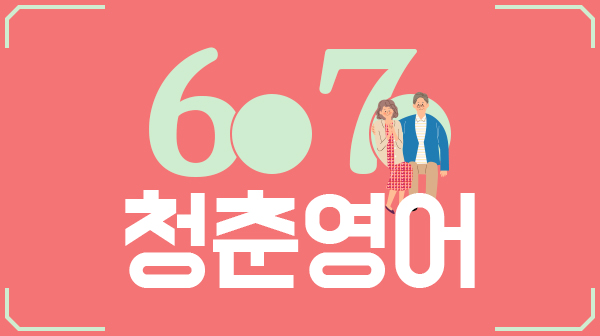-
- ņśüņ¢┤
- Sel TEST
- English Hub
- Speaking TIP
- Culture Story
- Business Writing
- ņØ╝ļ│Ėņ¢┤
- Sel TEST
- Japan Hub
- ņżæĻĄŁņ¢┤
- Sel TEST
- Chinese Hub
- ņżæĻĄŁ ņĄ£ņŗĀ ļē┤ņŖż
- The China+
- ĻĘĖļ”¼ņŖżņ¢┤
- ļäżĒīöņ¢┤
- ļÅģņØ╝ņ¢┤
- ļØ╝ņśżņŖżņ¢┤
- ļ¤¼ņŗ£ņĢäņ¢┤
- ļŻ©ļ¦łļŗłņĢäņ¢┤
- ļ¬ĮĻ│©ņ¢┤
- ļ»Ėņ¢Ćļ¦łņ¢┤
- ļ¦ÉļĀłņØ┤ņ¢┤
- ļ▓ĀĒŖĖļé©ņ¢┤
- ļ▒ģĻ│©ņ¢┤
- ļČłĻ░Ćļ”¼ņĢäņ¢┤
- ņŖżņÖĆĒ×Éļ”¼ņ¢┤
- ņŖżĒÄśņØĖņ¢┤
- ņŗ▒ĒĢĀļØ╝ņ¢┤
- ņĢäļ׏ņ¢┤
- ņĢäļź┤ļ®öļŗłņĢäņ¢┤
- ņĢäņĀ£ļź┤ļ░öņØ┤ņ×öņ¢┤
- ņĢöĒĢśļØ╝ņ¢┤
- ņÜ░ļź┤ļæÉņ¢┤
- ņÜ░ņ”łļ░▒ņ¢┤
- ņÜ░Ēü¼ļØ╝ņØ┤ļéśņ¢┤
- ņØ┤ļ×Ćņ¢┤
- ņØ┤Ēāłļ”¼ņĢäņ¢┤
- ņØĖļÅäļäżņŗ£ņĢäņ¢┤
- ņ▓┤ņĮöņ¢┤
- ņ║äļ│┤ļööņĢäņ¢┤
- Ēéżļź┤ĻĖ░ņŖżņ¢┤
- ņ╣┤ņ×ÉĒØÉņ¢┤
- Ēā£ĻĄŁņ¢┤
- Ēä░Ēéżņ¢┤
- Ēł¼ļź┤Ēü¼ļ¦żļŗłņŖżĒāäņ¢┤
- Ēżļź┤Ēł¼Ļ░łņ¢┤
- ĒÅ┤ļ×Ćļō£ņ¢┤
- Ēöäļ×æņŖżņ¢┤
- ĒŚØĻ░Ćļ”¼ņ¢┤
- Ē×īļööņ¢┤
- ļ©╝ļéśļØ╝ ņØ┤ņøāļéśļØ╝
-

Culture Story
Ļ▓īņŗ£ĻĖĆ ņłś | 419
Ļ┤ĆļĀ© Ļ░Ģņóī ņłś | 174
- Eddie the Eagle: a man who never gave up his dream to be in the Olympics
- hsg | 2016.08.16 10:11
-
Eddie the Eagle: a man who never gave up his dream to be in the Olympics
Pre discussion questions
What do you think is important to be successful?
What does successful mean to you?

Michael Edwards is more famous as Eddie the Eagle. He finished last in both ski jumping events at the Calgary Winter Olympics in 1988. But his attitude made him famous. And it also made him very rich. But it was not money and fame that Eddie wanted. EddieŌĆÖs dream was to represent England at the Olympics.
A dream that came true. But it didnŌĆÖt come easy.
Eddie grew up in a poor working class family in Cheltenham, England. He didnŌĆÖt even try his hand at skiing until he was a teenager. His first skied on the synthetic ski slopes in Gloucester. By the age of 17, he was an elite downhill racer. He competed in many European events. He almost qualified for BritainŌĆÖs downhill racing team for the 1984 Winter Olympics.
He decided that for the ŌĆś88 Games, he could qualify as a ski jumper. He thought this would be the best chance to get into the Olympics because Britain did not have a team. But because there was no team, it meant there were no coaches, equipment or money for training. And there were no ski-jumps in Britain.
So Eddie saved his money, borrowed his momŌĆÖs car and drove around Europe to train. He hoped to be the first British person to qualify for ski jumping in the Olympics. He got old jumping skis and boots. The boots were too big so he had to wear six pairs of socks to make them fit!He trained and competed in jumping events across Europe. And he paid for this it with money he earned as a construction worker in Cheltenham England. But it wasnŌĆÖt enough. So he had to work other small jobs like in restaurants, cleaning floors, babysitting, cutting grass and cooking. Sometimes he had to eat out of garbage cans and sleep in the car. He once stayed overnight in a Finnish mental hospital because it was so cold outside. He had a bad fall in Italy and broke his jaw. He couldnŌĆÖt pay for medical treatment, so he tied up his jaw with a pillowcase and kept training.
His poor eyesight required glasses that often fogged up inside his goggles. ŌĆ£Sometimes I take off, and I canŌĆÖt see where IŌĆÖm going,ŌĆØ said Eddie. The thick lenses in his glasses made his eyes look huge. And this made him look foolish. He was also about 8 kilograms heavier than his competitors making him fall more like a rock rather than flying further down the hill. In jumping, style is important for winning and making the longest jump.
Despite the problems he had, Eddie was determined to get better and slowly his distances improved. In 1987, he represented Great Britain in the World Championships in Germany. He finished last, but he was starting to become famous.
When Eddie arrived in Calgary for the 1988 Calgary Olympics, a Canadian TV crew and a fan club greeted him with a banner that said: ŌĆ£Welcome to Calgary, Eddie The EagleŌĆØ. Eddie was easy to see because he wore pink googles over his thick glasses. But he did not crash on any of his jumps in Calgary and even achieved a personal best on one of them.
Being famous caused him to soon make a lot of money. The most famous American T.V. show presenter, Johnny Carson invited him to be on his show before the Games had even finished. After the Games, he traveled all over the world and was seen and heard on TV and radio. Eddie was used to open shopping malls, ski shops, and sell his own T-┬Łshirts ŌĆō earning him over a million dollars in the 1980s. Because Eddie was an amateur he had to have all of his money put in a trust. Unfortunately the trustees lost most of the money. Eddie sued them in 1992, recovering some of it.
Eddie stole the show in Calgary. Many other competitors did not like this because he was more famous than the elite athletes.
But his story has endured and he has used his fame to keep earning money over the years.
ŌĆ£I have never thought I am a failure at all. I qualified for the Olympic Games in Calgary. I went there and I did the best I could with what I had. I did not have a lot of ability. I knew I was going to come last, as IŌĆÖd only been doing it for two years and everyone else had been jumping for 20 years. But for me, getting there was my gold medal. I was a true amateur and was what the Olympic idea is all about. The failures are the people who never try anything. Anyone who has a go is a success.ŌĆØ ŌĆō
Try to guess the meaning of the words in bold and match them with their closest meaning from the choices in the right. Some of the answers are very close and have similar meaning. The meaning of these words is how they are used in the reading. Some of these words have different meanings in the dictionary depending on how they are used.
The answers are below the table.
try ŌĆ” hand at
A
1
Not real but looks like the real material or fabric
synthetic
B
2
Desire or energy to try very hard and never give up
Despite
C
3
To keep going even though difficult
determined
D
4
To attempt something new
stole the show
E
5
The very best
endured
F
6
To try
has a go
G
7
To be the most popular
elite
H
8
Even though, to do something without being qualified or good at something
A=4, B=1, C=8, D=2, E=7, F=3, G=6, H=5
Some example sentences using the new words or phrases from the meaning of how they are used in the reading to help you understand better.
1. You should try your hand at tennis, it is a fun sport.
2. Korean makes the best synthetic leathers, they feel real.
3. Despite doing badly on the test, he still got an A for the course.
4. She practiced English 2 hours each night because she was determined to get more opportunities.
5. That performance stole the show and the judges decided it was the best tonight.
6. During August you have to endure a lot of rain.
7. I had a go at a lot of sports, but I was never good at them.
8. To be an elite athlete you must eat very well and train your body everyday.
Some questions using the new words/phrases. Try to use the words/phrases in your answer.
Why did Eddie the Eagle steal the show despite being the worst.
1. Have you ever tried your hand at something new even though you were not good at it?
2. Can synthetic sometimes be better than real things? Describe.
3. Despite failing, have you still tried to do something.
4. What do you think is more important, determination or talent (a natural ability to do something).
5. How do you feel about people who endure to be successful? Have you ever endured at something?
6. What would you like to have a go at?
7. What make the Korean skater Kim YuNa elite?
- ņČöņ▓£Ļ░Ģņóī























